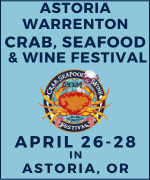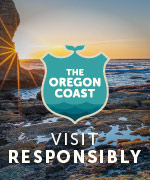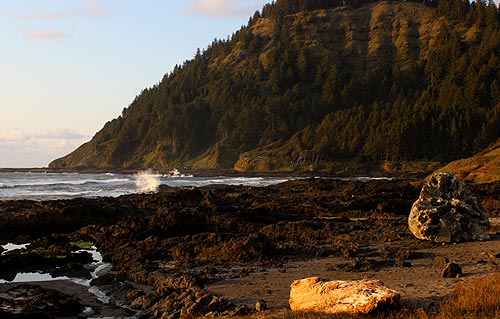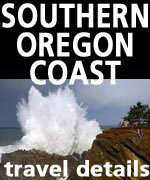Tidepool Experiments Yield Finds About Climate Change on Oregon Coast
Published 01/11/22 at 5:22 AM PST
By Oregon Coast Beach Connection staff
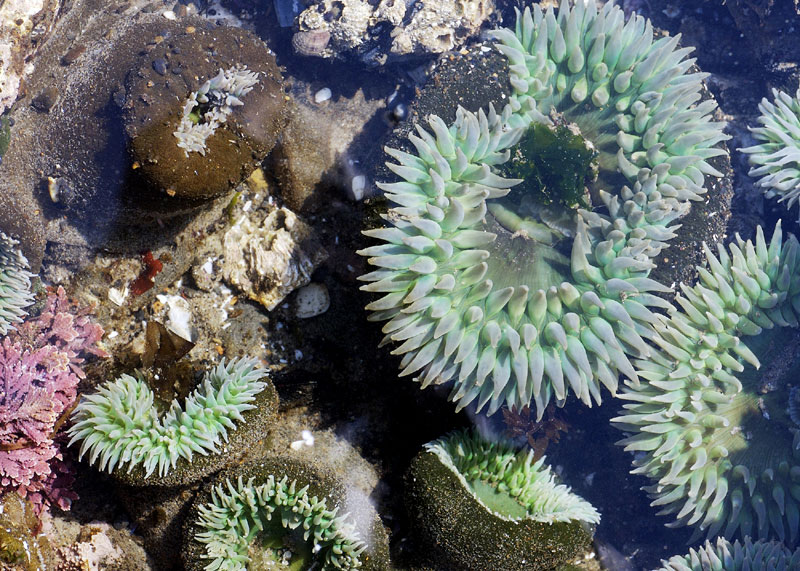
Includes exclusive listings; some specials in winter
In Cannon Beach:
Includes rentals not listed anywhere else
In Manzanita, Wheeler, Rockaway Beach:
Some specials for winter
In Pacific City, Oceanside:
Some specials for winter
In Lincoln City:
Some specials for winter
In Depoe Bay, Gleneden Beach:
Some specials for winter
In Newport:
Look for some specials
In Waldport
Some specials for winter
In Yachats, Florence
Some specials for winter
Southern Oregon Coast Hotels / Lodgings
Reedsport to Brookings, places to stay; winter deals
(Oregon Coast) – Scientists with Oregon State University have found that the ecological communities along the Oregon coast seem to be losing their resiliency – their ability to recover from some kind of disruption. Their findings indicate natural systems like tidepools are becoming slightly destabilized in the face of a warming planet, which is causing warmer ocean temperatures in this region.
The study published this week in the Proceedings of the National Academy of Sciences shows OSU scientists tracking such changes for the last decade, using tidepools in three different areas of the Oregon coast. Lead author Bruce Menge said the experiments showed creatures living in the tidepools were losing their ability to repopulate an area if it was cleared off, a warning sign that organisms are reacting badly to the stresses of warmer temps and the resultant changes in the nearshore environment.
“Climate change is threatening to destabilize ecological communities,” said Menge, a professor of integrative biology at OSU who has been conducting research on the coast for four decades. “A possibility is that they'll stop being persistently occupied, what we call basins of attraction, and move into other states.”
Menge said these discoveries are important because understanding how plants and animals respond to climate change, even in the subtle ways found in the study, are critical to understanding what happens to higher lifeforms and to human civilization.
While the study did not find the ecology of Oregon coast tidepools was at a tipping point in general, it's being described as not good news.
Menge, along with postdoctoral researcher Sarah Gravem and colleagues in the College of Science at OSU, studied tidepool areas at Cape Blanco on the south Oregon coast, and at Cape Foulweather and Cape Perpetua on the central coast, from 2011 to 2019.
They marked out different sections of intertidal zones in each area, each one about a half-meter square. Once a year they cleared out all lifeforms in those plots, including plants and creatures such as seagrass, snails, crabs, limpets, mussels, sea anenomes, barnacles, and so on. Thus, they would create what were called “disturbed spots:” tidepool areas that had experienced a major issue, a test to see how they would be repopulated.
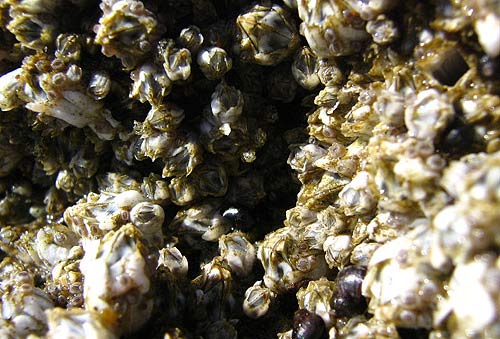
The testing spots were photographed throughout the year, looking at how each spot recovered from the traumatic event. A stable ecology would result in a steady repopulation.
That did not happen, researchers discovered. Instead, the rate of recovery slowed and became more variable, an indication the ecological communities of sea life were not stable – and they became less so the more the decade wore on.
“Increasing variation in key ecological processes can be a signal that an ecosystem is on the verge of a state shift,” Gravem said. “On the Oregon coast, the factors behind that increasing variation appear to be coming from changes in ocean currents and thermal disruptions like marine heat waves, which can alter growth, decrease colonization rates and kill organisms.”
Gravem said systems that are resilient and in good shape should bounce back quickly, but these experiments in tidepool systems of the coast are showing that is not happening, that indeed their abilities to recover are diminishing.
“Even the intact communities we studied alongside the cleared plots became more variable, which we believe to be a harbinger of instability and an early warning sign for community state change,” she said.
Oregon Coast Hotels in this area - South Coast Hotels - Where to eat - Maps - Virtual Tours
Cannon Beach Lodging
Nehalem Bay Lodgings
Manzanita Hotels, Lodging
Three Capes Lodging
Pacific City Hotels, Lodging
Lincoln City Lodging
Depoe Bay Lodging
Newport Lodging
Waldport Lodging
Yachats Lodging
Oregon Coast Vacation Rentals
Oregon Coast Lodging Specials
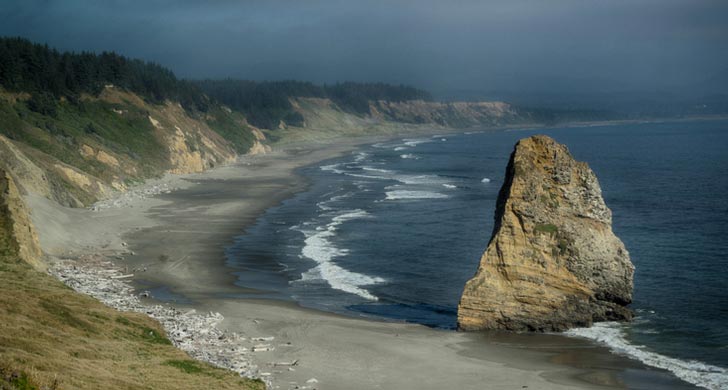
Cape Blanco (courtesy Oregon State Parks)
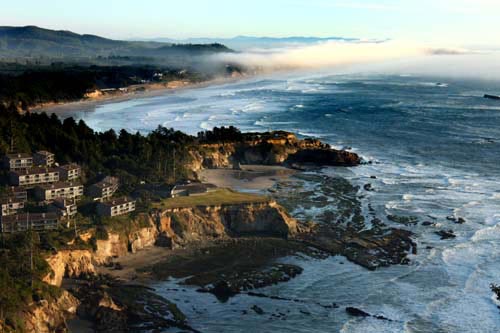
More About Oregon Coast hotels, lodging.....
More About Oregon Coast Restaurants, Dining.....
LATEST Related Oregon Coast Articles
The building had also been robbed of pipes and copper by other thieves. True Crime, Astoria, Warrenton
Oregon Coast Crabbing Petition Denied, Rulemaking Process Remains on Course
A petition on procedural matters denied; no major changes yet. Whale
S. Oregon Coast Wind Warnings, Waves Up To 23 Feet
Gusts up to 65 and high waves for the weekend from Reedsport to Brookings. Weather
Newport Latest Oregon Coast Town to Ban Personal Fireworks Year-Round
City countcil voted this week; the pro fireworks display goes on as usual
Hazardous Seas Watch on N. Oregon Coast, S. Washington Coast, Waves Up To 15 Ft
Beaches will require caution but some good wave shows possible
Annual 'Maine' Event Returns to N. Oregon Coast's Seaside Aquarium
February 22 brings the fundraiser to Seaside. Seaside events
From Taking In Cool Oregon Coast Colors on the Patio to Seaside's Action
Review of Seaside's Seashore Inn on the Beach: spectacle with breakfast and your dog. Seaside hotel reviews
Oregon US Coast Guard Team Assists in Olympic National Forest Rescue
Helicopter team from Astoria rescued hikers on Washington's Mount Ellinor
Back to Oregon Coast
Contact Advertise on BeachConnection.net
All Content, unless otherwise attributed, copyright BeachConnection.net Unauthorized use or publication is not permitted












